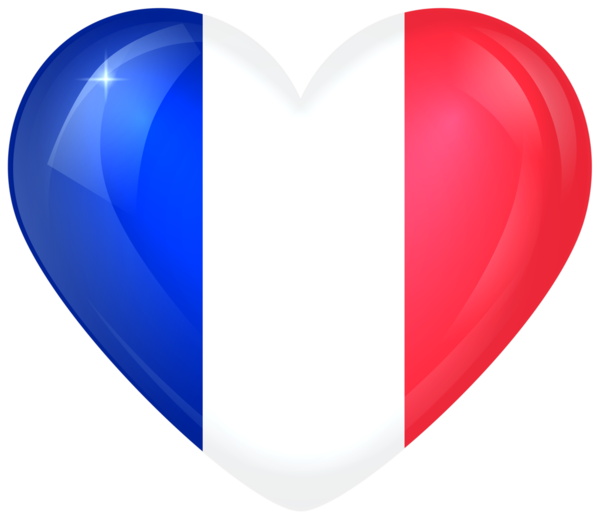
Subject Pronouns in French
August 1, 2024
Regular Verbs in Present Tense
August 1, 2024Basic Adjectives in French
Adjectives are essential components of any language, allowing us to describe and give more detail to nouns. In French, understanding how to use and agree adjectives with the nouns they describe is crucial for effective communication. This article will provide a detailed guide on basic French adjectives, their agreement rules, and practical examples to help beginners at the A1 level.
What Are Adjectives?
Adjectives are words that describe or modify nouns. They provide additional information about an object’s size, color, shape, quantity, and more. In English, adjectives usually precede the noun they describe (e.g., a red apple). In French, adjectives can either precede or follow the noun, depending on the type of adjective.
Basic Rules for French Adjectives
- Gender Agreement: French adjectives must agree in gender with the nouns they describe. If the noun is masculine, the adjective must be masculine. If the noun is feminine, the adjective must be feminine.
- Number Agreement: Adjectives must also agree in number. If the noun is singular, the adjective must be singular. If the noun is plural, the adjective must be plural.
Forming Adjective Agreement
To form the correct adjective agreement, you generally follow these rules:
- Masculine Singular: Base form (e.g., grand – big)
- Feminine Singular: Add -e to the base form (e.g., grande)
- Masculine Plural: Add -s to the base form (e.g., grands)
- Feminine Plural: Add -es to the base form (e.g., grandes)
Example:
- Masculine Singular: un chien intelligent (an intelligent dog)
- Feminine Singular: une chienne intelligente (an intelligent female dog)
- Masculine Plural: des chiens intelligents (intelligent dogs)
- Feminine Plural: des chiennes intelligentes (intelligent female dogs)
Common Irregular Adjectives
Some adjectives have irregular forms that do not follow the standard rules. Here are a few examples:
- Beau (beautiful)
- Masculine Singular: beau
- Feminine Singular: belle
- Masculine Plural: beaux
- Feminine Plural: belles
- Nouveau (new)
- Masculine Singular: nouveau
- Feminine Singular: nouvelle
- Masculine Plural: nouveaux
- Feminine Plural: nouvelles
- Vieux (old)
- Masculine Singular: vieux
- Feminine Singular: vieille
- Masculine Plural: vieux
- Feminine Plural: vieilles
Placement of Adjectives
In French, the placement of adjectives can vary. While many adjectives follow the noun they describe, some common adjectives precede the noun. Here are some examples:
- Adjectives That Follow the Noun:
- un livre intéressant (an interesting book)
- une maison blanche (a white house)
- des enfants heureux (happy children)
- Adjectives That Precede the Noun:
- un petit chien (a small dog)
- une bonne idée (a good idea)
- des vieux amis (old friends)
List of Basic Adjectives
Here is a list of common adjectives that beginners should know, along with their meanings and examples of usage in sentences:
- Grand(e) (big/tall)
- Example: Un grand arbre (a big tree), Une grande femme (a tall woman)
- Petit(e) (small/short)
- Example: Un petit chat (a small cat), Une petite fille (a short girl)
- Bon(ne) (good)
- Example: Un bon repas (a good meal), Une bonne réponse (a good answer)
- Mauvais(e) (bad)
- Example: Un mauvais film (a bad movie), Une mauvaise journée (a bad day)
- Jeune (young)
- Example: Un jeune homme (a young man), Une jeune fille (a young girl)
- Vieux/Vieille (old)
- Example: Un vieux bâtiment (an old building), Une vieille maison (an old house)
- Beau/Belle (beautiful)
- Example: Un beau jardin (a beautiful garden), Une belle fleur (a beautiful flower)
- Nouveau/Nouvelle (new)
- Example: Un nouveau livre (a new book), Une nouvelle voiture (a new car)
- Fort(e) (strong)
- Example: Un homme fort (a strong man), Une femme forte (a strong woman)
- Faible (weak)
- Example: Un enfant faible (a weak child), Une plante faible (a weak plant)
- Heureux/Heureuse (happy)
- Example: Un homme heureux (a happy man), Une femme heureuse (a happy woman)
- Triste (sad)
- Example: Un film triste (a sad movie), Une histoire triste (a sad story)
- Intelligent(e) (intelligent)
- Example: Un garçon intelligent (an intelligent boy), Une fille intelligente (an intelligent girl)
- Rapide (fast)
- Example: Une voiture rapide (a fast car), Un train rapide (a fast train)
- Lent(e) (slow)
- Example: Une tortue lente (a slow turtle), Un escargot lent (a slow snail)
- Cher/Chère (expensive)
- Example: Un bijou cher (an expensive jewel), Une robe chère (an expensive dress)
- Facile (easy)
- Example: Un exercice facile (an easy exercise), Une tâche facile (an easy task)
- Difficile (difficult)
- Example: Un problème difficile (a difficult problem), Une question difficile (a difficult question)
- Court(e) (short)
- Example: Un film court (a short film), Une jupe courte (a short skirt)
- Long(ue) (long)
- Example: Un long chemin (a long path), Une longue route (a long road)
Practical Usage in Sentences
Understanding how to use adjectives in sentences is essential for fluency. Here are some examples that demonstrate the proper agreement and placement of adjectives:
- Describing Objects:
- La maison est grande. (The house is big.)
- Il a une voiture rouge. (He has a red car.)
- Describing People:
- Marie est une fille intelligente. (Marie is an intelligent girl.)
- Paul est un homme fort. (Paul is a strong man.)
- Describing Feelings:
- Nous sommes heureux. (We are happy.)
- Elle est triste aujourd’hui. (She is sad today.)
- Describing Situations:
- C’est une bonne idée. (That’s a good idea.)
- Le film était très intéressant. (The movie was very interesting.)
Common Mistakes and Tips
- Incorrect Agreement: A common mistake is failing to make the adjective agree in gender and number with the noun.
- Incorrect: Une homme intelligent (A smart man – incorrect agreement)
- Correct: Un homme intelligent (A smart man – correct agreement)
- Placement of Adjectives: Remember that while most adjectives follow the noun, some precede it.
- Incorrect: Un maison blanche (A white house – incorrect placement)
- Correct: Une maison blanche (A white house – correct placement)
- Gender-Specific Adjectives: Be mindful of adjectives with different masculine and feminine forms, especially irregular ones.
- Incorrect: Un belle jardin (A beautiful garden – incorrect gender)
- Correct: Un beau jardin (A beautiful garden – correct gender)
Practice Exercises
Here are some exercises to help you practice using French adjectives correctly:
- Fill in the blanks with the correct form of the adjective:
- Un chat (noir) → _ chat _
- Une fleur (joli) → _ fleur _
- Des garçons (intelligent) → _ garçons _
- Des filles (heureux) → _ filles _ Answers:
- Un chat noir
- Une jolie fleur
- Des garçons intelligents
- Des filles heureuses
- Translate the following sentences into French:
- She is a young girl.
- They are strong men.
- We have a new house.
- I see a beautiful flower. Answers:
- Elle est une jeune fille.
- Ils sont des hommes forts.
- Nous avons une nouvelle maison.
- Je vois une belle fleur.
- Correct the errors in the following sentences:
- Un homme belle.
- Une voiture rouge.
- Des enfants intelligent.
- Une journée heureux. Answers:
- Un homme beau.
- Une voiture rouge. (Correct as is)
- Des enfants intelligents.
- Une journée heureuse.
Conclusion
Understanding and using adjectives correctly is essential for expressing detailed descriptions and nuances in French. By learning the basic rules of agreement and placement, as well as practicing with common adjectives, you will significantly improve your ability to communicate effectively. Remember to pay attention to gender and number agreement, and to practice regularly to build your confidence and fluency
in using French adjectives. Bonne chance (good luck) on your journey to mastering French!

